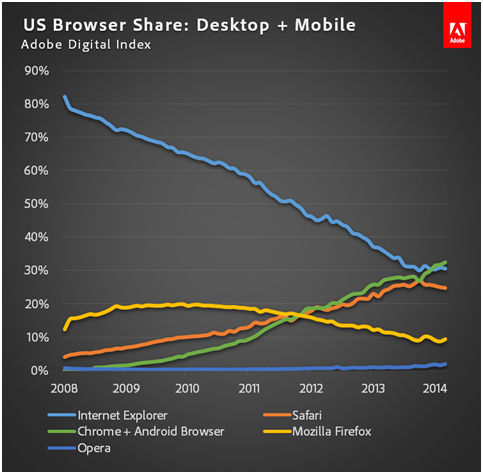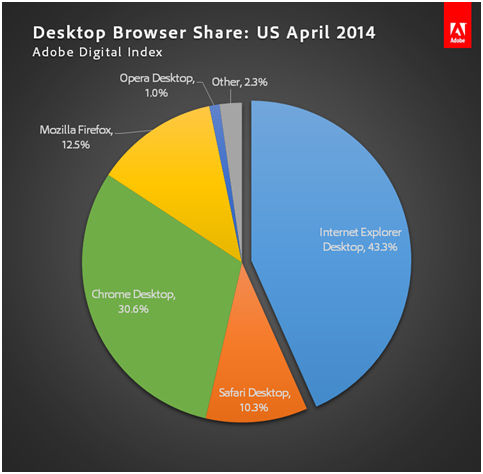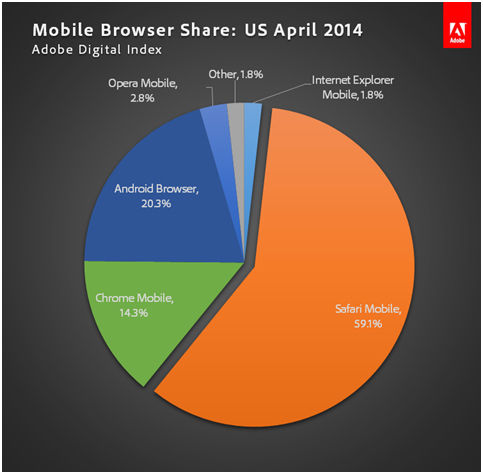Report: Google Chrome & Android Browsers Surpass IE, Become Most Popular Browsers In US
- Fahad H

- Jun 5, 2014
- 2 min read
A new report from Adobe Digital Index reveals
Google browsers have surpassed Microsoft IE in US market share, with Chrome and Android browsers winning 31.8 percent of the combined desktop and mobile browser market, compared to IE’s 30.9 percent market share.
Adobe claims this is a six-percent year-over-year increase for Google, while IE is down six-percent year-over-year.
Apple’s Safari ranked No. 3 with 25 percent of the combined desktop and mobile market share, yet it owns more than half of the mobile market share.
“Device defaults matter,” said ADI analyst Tyler White, “Today mobile OS is more important, giving Google and Apple a leg up with default status on Android and iOS.”

ADI’s report shows Mozilla’s Firefox taking a deep dive, down nearly 20 percent from the amount of market share it commanded only two years ago. Without a mobile presence, Firefox owned only 8.7 percent of the market in April.
To analyze browser market share and audit growth for the last six years, ADI aggregated anonymous data from consumer facing websites spanning an number of industries, tracking the browser usage of 17 billion visits to 10,000 websites in April, and more than 1 trillion visits dating back to 2008.
Microsoft’s IE is still the most popular desktop browser, owning 43 percent of the market, with Chrome falling behind IE by more than 10 percent as the No. 2 most popular desktop browser in the US.
Desktop Browser Market Share:

At 59.1 percent, Apple’s Safari owns the biggest share of the mobile browser market, followed by the Android browser with 20.3 percent of the market and Chrome Mobile with 14.3 percent market share.
Adobe noted that Apple’s dominance is limited to mobile as its desktop popularity falls short of IE, Chrome and Firefox.
Mobile Browser Market Share:

ADI claims Google’s rise in browser popularity is the result of users wanting a consistent experience across their devices.
With the browser market split between Google browsers, Microsoft IE, Apple’s Safari and Firefox, Adobe’s principal analyst Tamara Gaffney said marketers can no longer focus their development efforts on a single browser.
“Today, the market is fragmented,” said Gaffney, “There are four big players, and there is a certain portion of the digital audience using each of them, depending on which device is in use at any given time.”




Comments